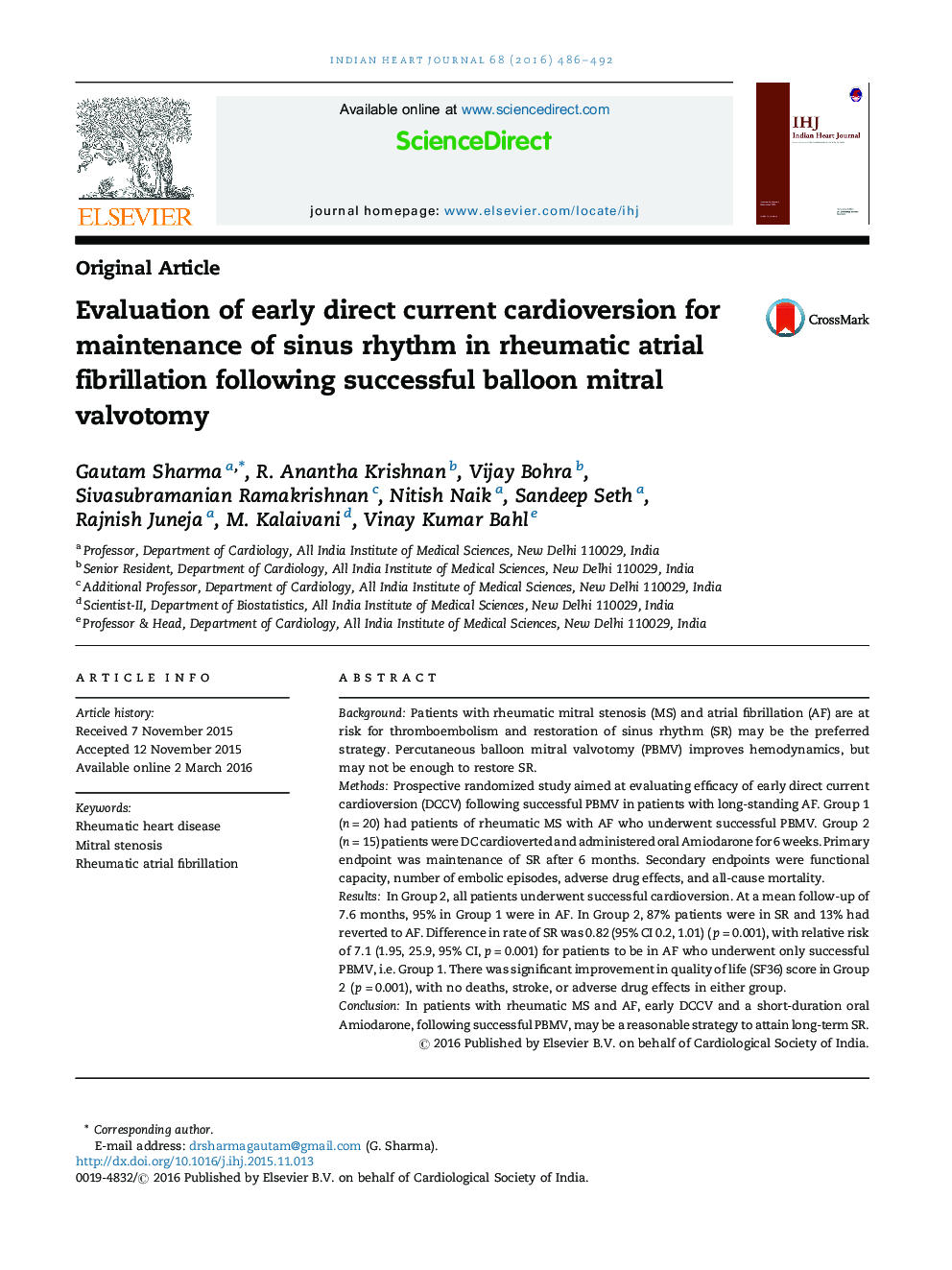| Article ID | Journal | Published Year | Pages | File Type |
|---|---|---|---|---|
| 2927317 | Indian Heart Journal | 2016 | 7 Pages |
BackgroundPatients with rheumatic mitral stenosis (MS) and atrial fibrillation (AF) are at risk for thromboembolism and restoration of sinus rhythm (SR) may be the preferred strategy. Percutaneous balloon mitral valvotomy (PBMV) improves hemodynamics, but may not be enough to restore SR.MethodsProspective randomized study aimed at evaluating efficacy of early direct current cardioversion (DCCV) following successful PBMV in patients with long-standing AF. Group 1 (n = 20) had patients of rheumatic MS with AF who underwent successful PBMV. Group 2 (n = 15) patients were DC cardioverted and administered oral Amiodarone for 6 weeks. Primary endpoint was maintenance of SR after 6 months. Secondary endpoints were functional capacity, number of embolic episodes, adverse drug effects, and all-cause mortality.ResultsIn Group 2, all patients underwent successful cardioversion. At a mean follow-up of 7.6 months, 95% in Group 1 were in AF. In Group 2, 87% patients were in SR and 13% had reverted to AF. Difference in rate of SR was 0.82 (95% CI 0.2, 1.01) (p = 0.001), with relative risk of 7.1 (1.95, 25.9, 95% CI, p = 0.001) for patients to be in AF who underwent only successful PBMV, i.e. Group 1. There was significant improvement in quality of life (SF36) score in Group 2 (p = 0.001), with no deaths, stroke, or adverse drug effects in either group.ConclusionIn patients with rheumatic MS and AF, early DCCV and a short-duration oral Amiodarone, following successful PBMV, may be a reasonable strategy to attain long-term SR.
